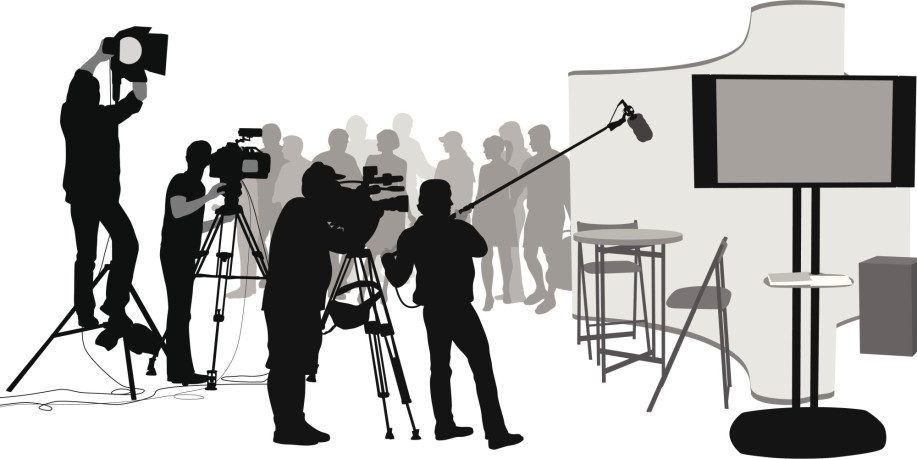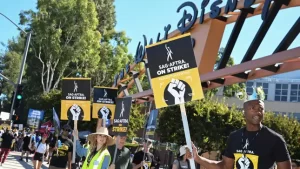When beginning your career in the entertainment business you will hear a lot of jargon you won’t necessarily understand. We spoke with leading industry professionals and comprised a list of the most commonly used terms you will encounter. Knowing these can help casting, producer, agents, managers, and more determine whether you are “green” or “seasoned.” — Check below if those two terms are new to you 🙂
Actors Equity Association (“AEA” you may also just hear “Equity”)– Live theatre actor’s union.
Bite and Smile- Certain kinds of commercial, usually MOS with food product.
Blocking- The movement of the performance. Where you walk, sit, cross the stage, enter, exit, etc. A director will usually ‘block’ a scene early in the rehearsal process. Blocking can range from being very general (enter here, exit there) or very specific (pick the pen up on this line, sit on the sofa at this line, etc.)
Booking- If you are offered a job you have “booked” that job. Thus, you have a “booking.”
Call Time- This is the time that you are to be on set, in make-up, etc. You “call time” essentially means, “appointment time.”
Cheat/Cheat in/Cheat out- To ‘cheat’ is to turn your face and/or entire body either out to the audience, or camera, to be seen better on camera, without completely turning your head/face to a a profile shot, or other unfavorable angle.
Cold Reading- Acting done in a short amount of time (usually same day), typically with the script in your hand, unmemorized or partially memorized.
Comps- Complimentary tickets. Actors are usually given comps to give their friends and family for the performances, premieres, and other events.
Copy- Usually refers to the script for commercial auditions, but generally means the “script.”
Ear Prompter- Device used by industrial film actors. Earpiece connected to a small tape recorder. Worn during taping to help actors with often dense, technical scripts that are difficult to memorize.
Fitting- Just like it sounds. You will be fitted for your wardrobe and/or costume(s).
Green actor- Refers to an inexperienced actor.
Greenroom- The actors’ lounge in the production studio.
Greenlit- Refers to when a television show or film is given the “ok” from a production studio to begin production, typically because that studio will be funding the project.
Industrials- Industrial Film. Refers to films made for corporations. Training films, product education, human resource training, etc. Work on industrials often involves memorizing a lot of technical writing.
MOS- ‘Mit Out Sound’- without sound. For on-camera only. Moments on screen with no dialogue. Reaction shots, visuals, etc.
Must Join- You will be referred to as a “must join” if it has been 30 days since your first SAG booking. You MUST join the union for your next union job.
Off Book- Reading without the script in your hand, and you have your lines completely memorized.
On Book- Reading with the script in your hand, and you do not have your lines completely memorized.
On Camera- Refers to anything seen on camera.
On Avail- A casting director will put you ‘on avail’ when you are wanted by the client for the job but not formally hired yet. When you accept an avail you agree to not take other jobs that would conflict with the production dates during this time.
Pilot- A sample of a television show that the producers then pitch to the networks. If the pilot is picked up by the network, ia certain amount of episodes will be “green-lit.”
Press Opening- Some theatres will have a special performance before opening night to which members of the press (critics) are invited. Usually, critics are invited for opening night.
Preview- Performance with an audience before official opening night. Usually invited friends. No press.
Props- Any non-costume, non-set items used in a production. A gun, a bottle, cell phone, etc..
SAG-AFTRA- In 2012, the unions Screen Actors Guild (SAG) and the American Federation of TV and Radio Artists (AFTRA) merged to create SAG-AFTRA. This union protects on-camera and voiceover artists.
Seasoned actor- Refers to an experienced actor.
Sides- The portion of the script that will be used for filming, “Sides” generally refers to the “script.”
Slate/Slating- You typically be will be asked to state your name, and sometimes the agent that sent you to the audition, before you begin the scene. This snippet of video is attached to your audition tape. This is known as “slating”
Table Read- This is when actors of a show, episode, and/or film get together with the director and other production members, read through the script.
Taft-Hartley- Refers to a legislative ruling also known as the National Labor Relations Act. Allows non-union actors to work their first union job and any others within a 30-day period of the first booking without having to join the union. They may not work any union job after the 30-day period without joining the union.



